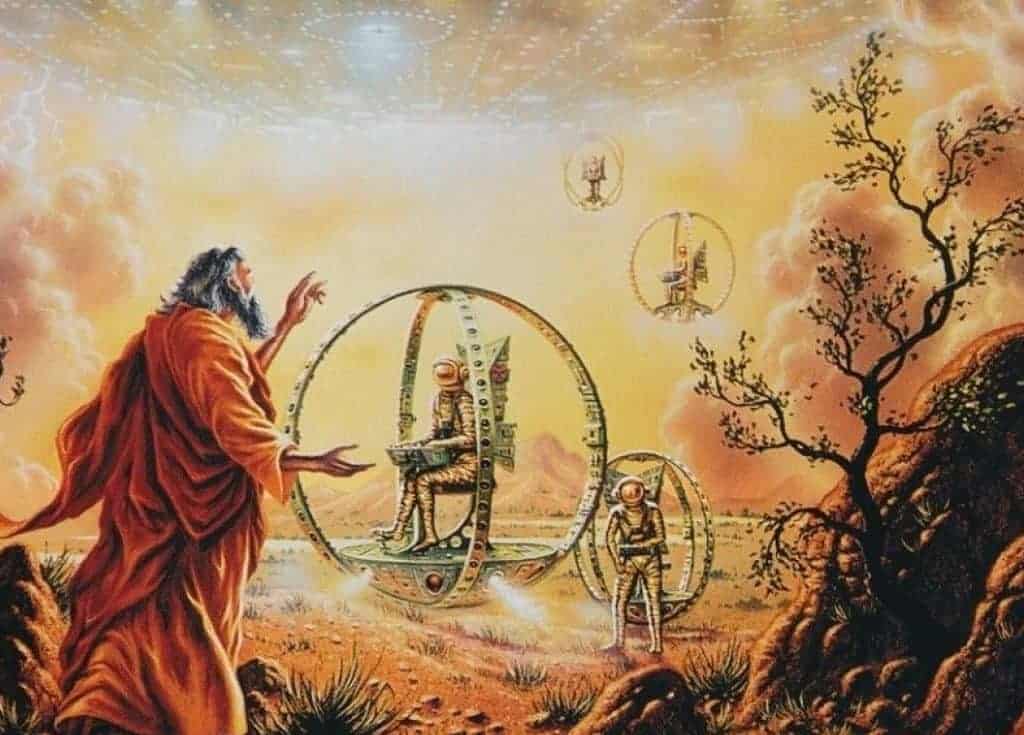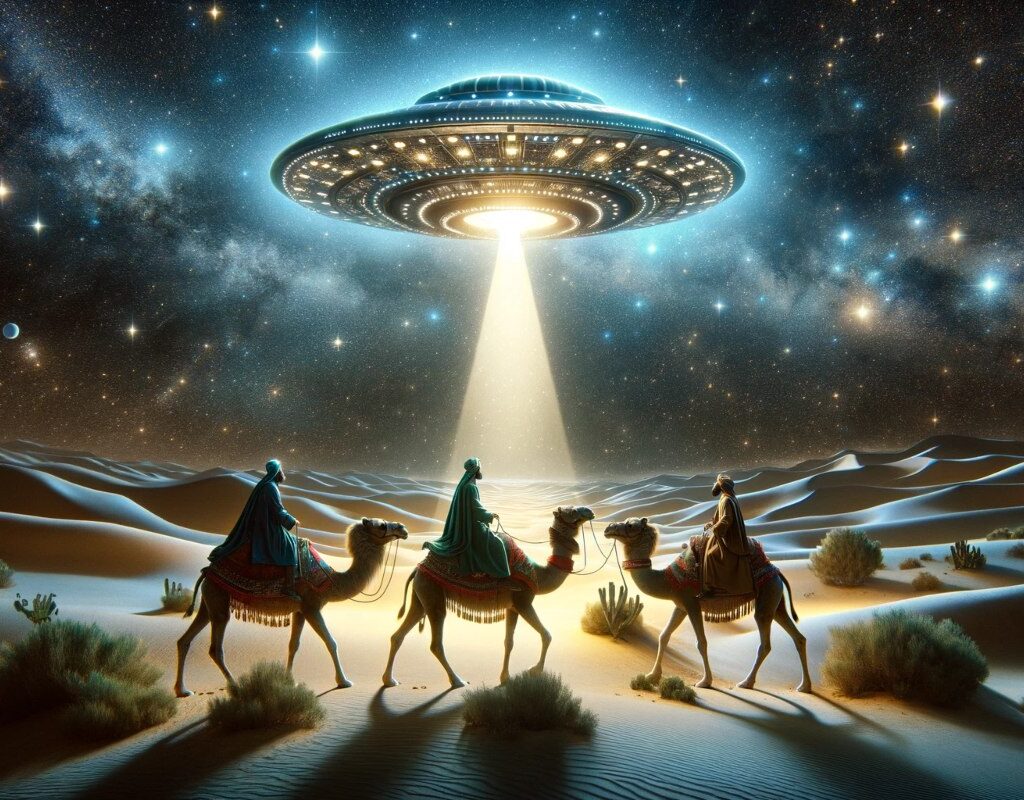Humanity has always gazed at the stars, marveling at the universe. The link between the Bible and extraterrestrial life suggests a blend of antiquity and modernity, prompting a reconsideration of our oldest narratives in light of cosmic possibilities.
Between Angels and UFOs: A New Reading of the Classics
The Bible, a compilation of writings that has guided millions throughout history, is also a treasure trove of stories that spark the imagination and pose profound questions. In this vein, scholars passionate about both theology and the UFO phenomenon have proposed bold interpretations of these texts.
Moreover, they argue that descriptions of angels and deities might conceal encounters with beings from other planets. Thus, this controversial idea offers an intriguing fusion of the divine and the extraterrestrial, suggesting that our traditional interpretations might need updating in the space age.
For instance, the burning bush through which God speaks to Moses could be an advanced technology, indistinguishable from magic to the ancient Israelites. In this context, just as Arthur C. Clarke posited that any sufficiently advanced technology is indistinguishable from magic, these biblical moments could be reinterpreted as encounters with alien technologies. Similarly, the chariots of fire and ships described in ancient texts lend themselves to a modern interpretation that associates them with extraterrestrial vehicles.
This approach does not seek to discredit the spiritual or religious value of these texts but to expand our understanding of them. Additionally, the possibility that our ancestors interpreted interactions with visitors from other worlds as divine does not diminish the depth of their experience but places it within a cosmos far more vast and complex than they could have imagined.
Thus, this new reading invites us to consider the universality of the human quest for contact, revelation, and meaning. It reminds us that throughout history, humanity has looked to the sky in wonder, seeking answers and sometimes finding in celestial visitors a source of inspiration, fear, and awe.
From Skepticism to Faith: The Modern Debate Over Extraterrestrial Life in the Bible
The dialogue between biblical narratives and the extraterrestrial hypothesis has generated a broad spectrum of reactions, from skepticism to enthusiastic acceptance. In this context, a vibrant debate unfolds that pits ancient traditions against the possibilities opened by scientific advancement.
The academic community, balancing historical and theological rigor with scientific curiosity, approaches these theories with a mix of caution and fascination.
On one hand, critics argue that the lack of concrete physical evidence and the danger of extrapolating modern interpretations to ancient texts undermine the credibility of these theories. They emphasize the importance of not detaching the texts from their historical-cultural contexts, where notions of divinity and miracles served specific social and spiritual functions.
Furthermore, they note how the desire to find “scientific” explanations for phenomena described in the Bible might reflect a contemporary bias, privileging the technological over the transcendental. However, proponents of the extraterrestrial interpretation of biblical texts find in archaeology, anthropology, and art history clues that, according to them, suggest an “other” presence in the development of ancient civilizations.
They argue that certain descriptions of artifacts, beings, and phenomena could be interpreted in light of advanced technology, opening the door to a broader understanding of our history and relationship with the cosmos.
This debate, far from being resolved, continues to enrich the discussion about the nature of the divine, the human, and the cosmic. By challenging established interpretations and exploring new possibilities, this dialogue expands the limits of our imagination and understanding.
It reminds us that, in the search for answers about our origin and destiny, an open mind is as important as intellectual rigor.
Divine Messages or Visitors from Another World? A Perennial Enigma
Reflecting on the possibility that beings from other planets have influenced biblical narratives, we find ourselves at a crossroads that questions not only our past but also our identity and future.
This exploration invites us to reconsider what the sacred means in a universe where the existence of extraterrestrial life might be a reality. Far from weakening faith or spirituality, this dialogue can enrich our understanding of the divine, broadening the framework in which we seek connections with the transcendent.
The interest in linking extraterrestrial phenomena with biblical events reflects a deep human desire to understand who we are in relation to the cosmos. This curiosity, encompassing both believers and skeptics, suggests that the search for meaning transcends conventional categories of religion and science.
In the end, the question of whether we have been alone in the universe or if beings from other worlds have interacted with humanity touches deep fibers of our collective being.
This inquiry, far from concluding with definitive answers, opens us to a space of wonder and humility. Recognizing that there is still much we do not know about the universe and our own history places us in a position of eternal learners, always in pursuit of understanding.
The possibility that humanity is part of a broader galactic community invites us to expand our perspectives and imagine new forms of connection and understanding.
In conclusion, the debate over extraterrestrial presence in biblical texts is not merely a matter of historical or theological interpretation. It is, at its core, a reflection of our openness to the unknown and our capacity for wonder at the mystery.




